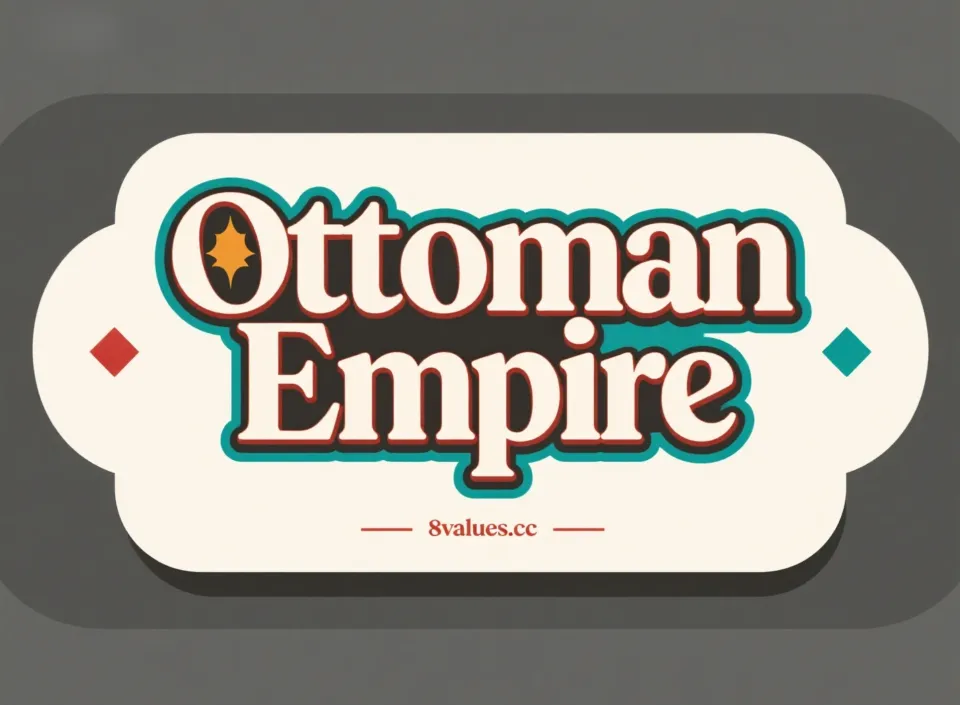Socialisme démocratique | 8 Values Interprétation de l'idéologie idéologique dans les tests politiques
Le socialisme démocratique est un élément important de l'idéologie politique, et elle préconise la combinaison de la démocratie politique et de l'économie socialisée. Cet article expliquera en détail les principes fondamentaux, le développement historique et les différences de la social-démocratie dans les résultats des tests politiques de 8 valeurs, et explorent son impact sur la politique contemporaine, afin de vous aider à mieux comprendre les résultats de vos valeurs politiques de 8 valeurs.
Le socialisme démocratique , en tant que philosophie économique et politique de gauche importante, soutient la démocratie politique et préconise une certaine forme d'économie de propriété sociale. Il vise à combiner les principes démocratiques avec un remodelage progressif des structures économiques pour atteindre l'égalité et la liberté individuelle.
Selon la définition des socialistes démocratiques d'Amérique (DSA), les socialistes démocrates croient que l'économie et la société devraient opérer démocratiquement, dans le but de répondre aux besoins du public plutôt que de faire des bénéfices pour quelques-uns. Ce concept s'oppose clairement au total le contrôle du gouvernement et à la pleine propriété des grandes entreprises.
Les socialistes démocrates croient que le capitalisme est essentiellement incompatible avec les valeurs de liberté, d'égalité et d'unité, et ces idéaux ne peuvent être réalisés que grâce à la réalisation de la société socialiste. Bien que la plupart des socialistes démocrates cherchent à passer au socialisme d'une manière progressive, l'idéologie comprend également une ligne politique qui soutient la réforme ou la révolution dans la réalisation du socialisme.
Les principes fondamentaux du socialisme démocratique
Le socialisme démocratique met l'accent sur l'expansion de la démocratie dans le domaine économique et la poursuite de la construction d'une société où la richesse et la distribution du pouvoir sont plus égales que le capitalisme. Ses principes principaux comprennent principalement:
Démocratie économique et propriété sociale
Le socialisme démocratique met l'accent sur l'importance égale de la démocratie politique et de la démocratie économique. Cela comprend la démocratie en milieu de travail et l'autogestion des travailleurs. Ses propositions économiques de base comprennent:
- Propriété publique: Des ressources économiques et des industries importantes sont détenues et gérées par le public ou l'État. Ce principe est conçu pour garantir que les ressources critiques profitent à toute la société, pas à quelques propriétaires privés.
- Planification économique: atteindre des objectifs sociaux en gérant et en régulant l'économie. Les socialistes démocrates préconisent le socialisme du marché, l'économie planifiée décentralisée ou l'économie planifiée démocratique centralisée.
- Justice économique: poursuit la distribution équitable des richesses et des ressources. Les partisans du socialisme du marché, tels que Jaroslav Vaněk, croient que sous la propriété privée de biens productifs, un véritable marché libre est impossible, car les différences de classe et la répartition inégale de la richesse déformeront les intérêts de la classe dominante.
- L'autogestion des travailleurs: de nombreux socialisme du marché préconisent le développement des coopératives des travailleurs et les travailleurs gérent les entreprises indépendamment parce que les travailleurs peuvent tirer une part de bénéfices de la performance globale de l'entreprise, ayant ainsi une plus grande motivation pour accroître la productivité.
Un système de protection sociale parfait et une redistribution de la richesse
Les socialistes démocrates préconisent d'atténuer les inconvénients provoqués par le capitalisme à travers un solide réseau de sécurité sociale et une redistribution de richesse.
- Dépenses sociales et fiscalité élevée: les gouvernements socialistes démocratiques tendent vers les dépenses étatiques élevées et la redistribution équitable de la richesse. Les données montrent que les pays ayant une proportion plus élevée de dépenses sociales au PIB ont également tendance à avoir une proportion plus élevée des recettes fiscales du PIB.
- NETS de sécurité sociale: soutient un système complet de protection sociale pour protéger la santé et le bien-être des citoyens. Cela comprend les dépenses sociales pour les groupes vulnérables tels que les enfants, les patients et les pauvres.
- Garantie de service public: défendre l'accès aux ressources de base telles que les soins de santé, l'éducation, le logement décent et la retraite décente pour tous. Par exemple, les socialistes démocrates des États-Unis (DSA) soutiennent l'assurance-maladie pour tous et popularise les études collégiales gratuites.
Analyse du socialisme démocratique et de la social-démocratie
Bien que le socialisme démocratique et la social-démocratie soient historiquement synonymes, au fil du temps, en particulier après la Seconde Guerre mondiale, les deux avaient une différenciation significative dans leurs principaux objectifs, ce qui était crucial pour comprendre la pensée politique contemporaine.
Différences de base des objectifs:
- La social-démocratie vise à réformer et à humaniser le capitalisme, atténuant les inégalités grâce à l'intervention gouvernementale, à la fiscalité progressiste et aux programmes de protection sociale. Il accepte que le marché fait partie intégrante de l'économie et s'engage à construire un fort État providence dans le cadre du capitalisme.
- Le socialisme démocratique vise à transcender et à remplacer le capitalisme. Alors que les socialistes démocrates soutiennent également les réformes du bien-être (telles que les soins de santé universels), ils voient ces réformes comme une étape de transition vers une transition plus profonde et systématique - c'est-à-dire une étape de transition vers une économie socialiste complète.
Différences du système économique:
- La social-démocratie soutient une économie mixte , dirigée par le capitalisme, accompagnée d'une réglementation solide et d'un bien-être public.
- Le socialisme démocratique conçoit une économie socialiste , avec des moyens de production détenus ou contrôlés par la société (le public ou les travailleurs). Ils s'engagent dans la transformation systématique de l'économie.
Différences pratiques:
- Les sociaux-démocrates acceptent souvent le capitalisme comme la situation actuelle dans la pratique, et leurs objectifs de réforme sont principalement limités au cadre capitaliste.
- De nombreux socialistes démocrates critiquent la social-démocratie comme la troisième voie s'est éloignée des objectifs socialistes et soutient en fait le capitalisme déguisé. Ils insistent pour transformer systématiquement le système économique.
Auto-positionnement: le socialisme démocratique et la social-démocratie poursuivent la justice sociale, mais empruntent des chemins différents. Si vous voulez savoir quelle idéologie votre position politique est plus proche, vous pouvez explorer votre position spécifique au niveau économique, social et politique avec le test de propension des valeurs politiques de 8 valeurs pour voir si vous avez tendance à réformer le capitalisme ou à vous engager à le remplacer.
Les origines historiques du socialisme démocratique
Les racines idéologiques du socialisme démocratique remontent au 19e siècle, alors qu'il s'agissait principalement d'une réponse aux inégalités sociales et économiques provoquées par la révolution industrielle.
Influence précoce de la fantaisie et de la pensée démocratique
Les origines du socialisme démocratique remontent aux penseurs socialistes utopiques au 19e siècle, comme Charles Fourier en France et Robert Owen en Grande-Bretagne. Ces premiers socialistes se sont engagés à construire un modèle coopératif dans lequel les gens travaillent ensemble pour construire une société meilleure.
En outre, cette idée a également été influencée par le mouvement chartiste de la Charte britannique, qui préconisait la prise de décision démocratique et la production publique de moyens de production comme les caractéristiques de base d'une société idéale.
La formation et la diffusion du socialisme évolutif
À la fin du XIXe et au début du XXe siècle, le socialisme démocratique a été profondément influencé par la «social-démocratie». Le «socialisme évolutif» d'Eduard Bernstein en Allemagne et la forme socialiste progressiste de la Société Fabian au Royaume-Uni ont influencé le développement du socialisme démocratique . Bernstein préconise la réalisation des objectifs socialistes à travers des méthodes graduelles et réformistes au sein de la société démocratique.
Avec l'expansion des institutions démocratiques et du suffrage universel au 20e siècle, le socialisme démocratique est devenu un mouvement grand public, formant des partis dirigeants ou d'opposition majeurs dans de nombreux pays (les États-Unis sont une exception majeure).
Développement mondial et résurgence contemporaine après la guerre
Après la Seconde Guerre mondiale, la pensée socialiste démocratique a joué un rôle important dans la reconstruction de l'Europe et a été profondément enracinée dans de nombreux systèmes politiques. La fondation de Socialist International en 1951 a fourni une plate-forme vocale mondiale pour le socialisme démocratique . Au cours de cette période, des pays comme la Suède et le Danemark sont devenus des modèles pour combiner avec succès des politiques de protection sociale avec la gouvernance démocratique.
En entrant dans le 21e siècle, le socialisme démocratique a retrouvé sa popularité aux États-Unis. Des personnalités politiques représentées par le sénateur Bernie Sanders et la représentante Alexandrie Ocasio-Cortez (AOC) prétendent être des socialistes démocrates , poussant leurs propositions politiques dans la vision dominante de la politique américaine. Le mouvement a été largement soutenu par la communauté des jeunes américains, dont beaucoup qui sont déçus de la façon dont le système capitaliste a fonctionné après la crise financière de 2008 et l'a lié à l'inégalité économique.
Modèles pratiques et cas de socialisme démocratique
La vision économique du socialisme démocratique englobe une variété de modèles qui visent à remplacer la propriété privée axée sur le profit.
Socialisme de marché et planification décentralisée
Les socialistes démocrates préconisent l'intégration dans le mécanisme du marché, c'est-à-dire le socialisme du marché, dans l'économie socialiste. Dans ce modèle, les entreprises socialement détenues opèrent sur des marchés concurrentiels et sont généralement gérés par leurs employés.
D'un autre côté, les partisans de la planification décentralisée défendent la prise de décision démocratique ou participative dans le processus de prise de décision économique. Ils ont rejeté un système économique basé sur l'ordre exécutif comme l'Union soviétique, le pensant être inefficace et le manque de démocratie.
Débat entre les cas pratiques et les modèles nordiques
Historiquement, les pratiques sociales suivant les principes du socialisme démocratique comprennent l'anti-autorité et l'anarchiste et la société socialiste anticapitaliste démocratiques. Les exemples célèbres incluent la commune de Paris et la Catalogne révolutionnaire en Espagne. En outre, le Chili a également mis en œuvre le socialisme démocratique sous le règne du président Salvador Allende.
À l'époque contemporaine, les modèles nordiques sont souvent mentionnés, comme le Danemark, la Suède et la Norvège. Ces pays sont connus pour leurs programmes de protection sociale complets, leurs fortes niveaux de vie et les faibles taux de pauvreté. Cependant, en termes de distinction idéologique stricte, ces pays sont souvent classés comme capitalisme social-démocrate plutôt que de socialisme démocratique complet. Ces pays ont largement conservé le cadre capitaliste et la propriété privée, et l'économie privée occupe une position dominante absolue dans l'économie nationale.
Compatibilité idéologique et valeur sociale
En tant qu'idéologie politique, le socialisme démocratique s'engage à réaliser une vision sociale qui transcende le capitalisme, et ses valeurs fondamentales se trouvent dans la poursuite de la liberté, de l'égalité et de l'unité.
Engagement envers la démocratie et la poursuite de la valeur
Pour les socialistes démocrates , la démocratie n'est pas seulement un moyen d'atteindre des objectifs (comme le socialisme), mais aussi l'essence fondamentale des objectifs socialistes eux-mêmes. Ils croient que la vraie démocratie ne peut être réalisée que lorsque tout le monde a un contrôle démocratique sur l'économie.
- Fondation humanitaire: le socialisme démocratique croit que le socialisme est une valeur morale et une demande éthique humaine, pas seulement une nécessité historique. Ses concepts de base, tels que la liberté, la justice, l'unité et l'assistance mutuelle, sont tous des manifestations de la vision du monde humanitaire.
- Justice sociale: défendre l'élimination de diverses discrimination sociale, telles que la discrimination fondée sur le sexe, la géographique ou l'ethnicité. Poursuivre la libération et le développement de la personnalité humaine.
- Droits des travailleurs: met l'accent sur le droit des travailleurs de parler et de représenter sur le lieu de travail et protège leurs droits économiques et sociaux fondamentaux, tels que le droit de travail, le droit à l'assurance maladie, le droit de repos et le droit à la sécurité économique lorsqu'ils sont vieux ou au chômage.
Distinguer les autres idéologies
Le socialisme démocratique s'oppose généralement à toutes les formes de centralisme.
- Différence par rapport au communisme: bien que les deux préconisent la propriété publique, le communisme tend généralement à la dictature à une partie, tandis que le socialisme démocratique adhère aux procédures démocratiques et aux libertés individuelles. Le socialisme démocratique respecte les élections démocratiques.
- Distinguer du socialisme traditionnel: le socialisme démocratique cherche à réaliser le socialisme par des moyens démocratiques, en mettant l'accent sur la combinaison de la démocratie politique et de la propriété sociale des moyens de production, tandis que le socialisme traditionnel implique parfois une planification économique centralisée et le contrôle de l'État, et peut même adopter une approche non démocratique.
Bien sûr, le socialisme démocratique fait également face à des critiques de toutes les côtés:
- Préoccupations des opposants non communistes: certains opposants croient que le socialisme et la démocratie sont essentiellement incompatibles. Ils craignent que le socialisme entraîne une augmentation de la bureaucratie de l'État et limite finalement les libertés individuelles, ce qui peut le conduire à la centralisation.
- La critique des opposants communistes: certains penseurs marxistes et communistes ont critiqué le socialisme démocratique pour avoir accordé trop d'attention au réformisme, croyant que le problème de l'exploitation capitaliste ne peut pas être fondamentalement résolu par des réformes démocratiques dans le cadre du capitaliste et que le système capitaliste peut être complètement désintéré par la révolution prolétarienne.
L'influence contemporaine et les perspectives d'avenir du socialisme démocratique
Depuis 2016, le socialisme démocratique a considérablement accru la visibilité et la popularité dans la politique américaine. L'Organisation des socialistes démocrates des États-Unis (DSA) a connu une augmentation significative des membres, les candidats remportant un certain siège dans les législatures locales et étatiques.
Consensus de populisme économique
Bien que l'étiquette du « socialisme démocratique » puisse rester controversée dans certains domaines, telles que les circonscriptions rouges et violettes, sa politique de populisme économique de base a été soutenue par un soutien intermédiaire.
L'enquête montre que la plupart des électeurs américains (y compris les républicains et les électeurs indépendants) conviennent que «notre système économique favorise les entreprises et les riches». Par conséquent, la question de «l'économie du pain et de beurre» telle que l'augmentation des salaires, la baisse des prix, la lutte contre la corruption des entreprises, la protection des droits de négociation organisationnelle et collective des travailleurs et investir dans des produits publics constitue un moyen direct pour les socialistes démocrates d'étendre leur base de soutien.
8 Values Test: Explorez vos coordonnées politiques
Si vous êtes intéressé par des idées telles que le socialisme démocratique , la social-démocratie ou le populisme économique et que vous souhaitez systématiquement comprendre vos propres valeurs politiques, vous pouvez essayer 8 valeurs de l'inclinaison des valeurs politiques . Ce test peut vous aider à vous positionner clairement sur huit dimensions de valeur fondamentale, notamment l'égalité économique, la liberté sociale, etc., pour mieux comprendre comment ces idéologies affectent votre prise de décision.
Le socialisme démocratique, en tant qu'idéologie qui préconise la réalisation de la justice sociale et économique dans le cadre démocratique, devient une force politique qui ne peut être ignorée dans le contexte de la mondialisation et des inégalités contemporaines, et continue de promouvoir des discussions sur l'équité économique et le bien-être social.
Vous voulez en savoir plus sur vos tendances politiques? Veuillez essayer notre test d'orientation politique de 8 valeurs et explorer une interprétation détaillée de l'idéologie des résultats de 8 valeurs . De plus, vous pouvez trouver plus d'articles sur la théorie politique et ses applications réelles dans notre blog .






